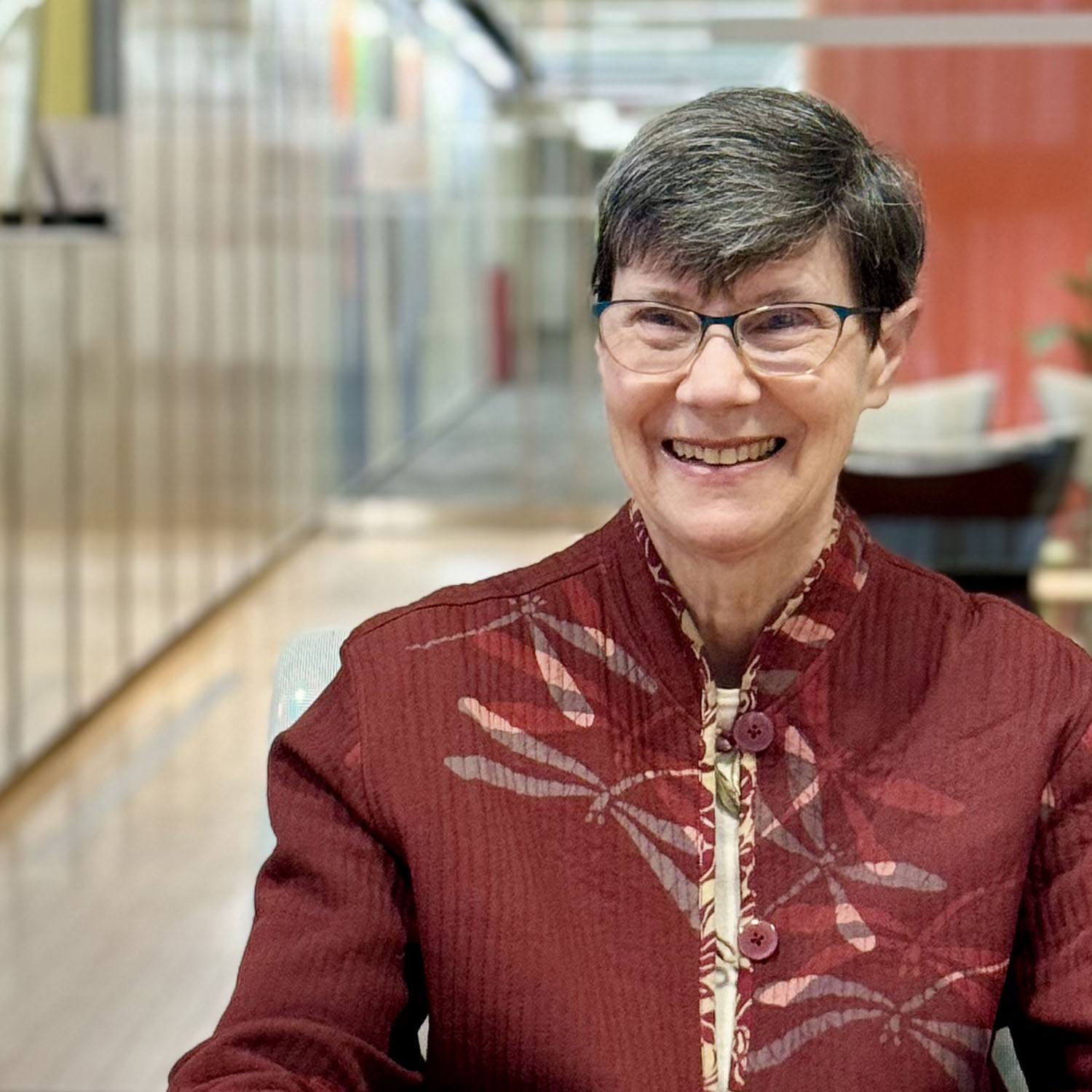Zeroing In on the Factors That Determine Whole Person Health
Director’s Page
Helene M. Langevin, M.D.
September 27, 2022
For too long, our human health has been viewed through a narrow set of lenses, focused on specific body parts or systems, and on the pathways toward disease, rather than toward health. Over the last few years, the National Center for Complementary and Integrative Health (NCCIH) has worked to advance research on whole person health, to help drive a paradigm shift and bring all aspects of our health into a clearer picture.
An essential step in the process is to develop a framework for how we think about whole person health. That’s why I’m excited about our progress in developing a framework for determinants of health that encompasses all four domains within the whole person health concept: biological, behavioral, social, and environmental.
This is not an easy task. For the framework to be useful for research, it needs to encompass the bidirectional continuum between health and disease, and it needs to be both comprehensive and concise. While hundreds of determinants could be reasonably considered, the framework must be carefully developed to reflect only the most essential factors. In doing so, we ensure it can serve as a pragmatic tool that supports rigorous and consistent approaches to whole person health studies.
It is also important that this effort should be congruent with other relevant frameworks, either preexisting or under development, such as for social determinants of health and behavioral risk factors that are included within the overall framework for whole person health. With such an important and complex task at hand, I’m grateful that we’ve had the input and expertise of colleagues as we’ve worked to put together the framework. Two working groups—one internal to the National Institutes of Health (NIH), with representatives from many Institutes, Centers, and Offices (ICOs), and one external to NIH, including a variety of organizations with a whole health or integrative health focus—have been giving us feedback throughout the process.
We also obtained valuable insights in other ways. The workshop we hosted in September 2021 on methodological approaches for whole person research offered valuable discussion on the challenges that need to be addressed in designing studies and opportunities that can be explored. We’ve also been inspired by the Veterans Health Administration’s Whole Health concept and similar models used by the military health system. Though these frameworks focus on patient care and ours is intended for research, there’s much concordance among all of them.
Several months ago, we solicited additional input from the scientific community and the public by publishing a request for information (RFI), “Identification of a Set of Determinants for Whole Person Health.” We asked people to suggest a limited number of determinants—no more than 20—that best define the health/disease continuum from the whole person health perspective, and we received 83 responses. When we analyzed the results, we were encouraged that respondents validated our own discussion within NCCIH and that the factors most frequently mentioned in responses to the RFI were all among those we had originally slated to include in the framework.
It’s interesting that sleep was the number one answer, mentioned in 21 of the 83 responses to the RFI. Until recently, most lists of major factors that influence health did not include sleep. But research linking sleep to specific conditions and health outcomes has been growing, and recognition of its importance as a health determinant signals how profoundly our understanding of health can shift with the introduction of rigorous studies.
I am grateful to the people and organizations that responded to the RFI. Each submission helped us clarify our thinking and ensure that the most crucial determinants are captured in the framework. I also appreciate the invaluable perspectives shared by members of our Advisory Council, who shared their thoughts on the most important factors in whole person health during their September meeting. Our Stakeholder Meeting for Research on Whole Person Health, to be held on October 17 and 18, will serve as another important opportunity to hear more about gaps and opportunities in whole person health research and what is needed to implement whole person health in the real world. We anticipate being able to share the final framework in the coming months.
We’re eager to continue working toward a whole person health research program. Our next steps after we finalize the framework will include establishing a set of common data elements—variables that can be measured in consistent ways through questionnaires, electronic health record data, laboratory tests, or other approaches—to assess each determinant. Having common data elements will help move research forward by guiding study design and making it possible to combine and compare results from multiple studies. We will also analyze NCCIH’s research portfolio to see which aspects of whole person health we’re already addressing, and which aspects need more attention. Finally, we plan to release targeted funding opportunity announcements for whole person health research.
I’ll keep you updated on these developments as they happen. Each is an important step forward in the effort to bring about a whole person approach to health.
